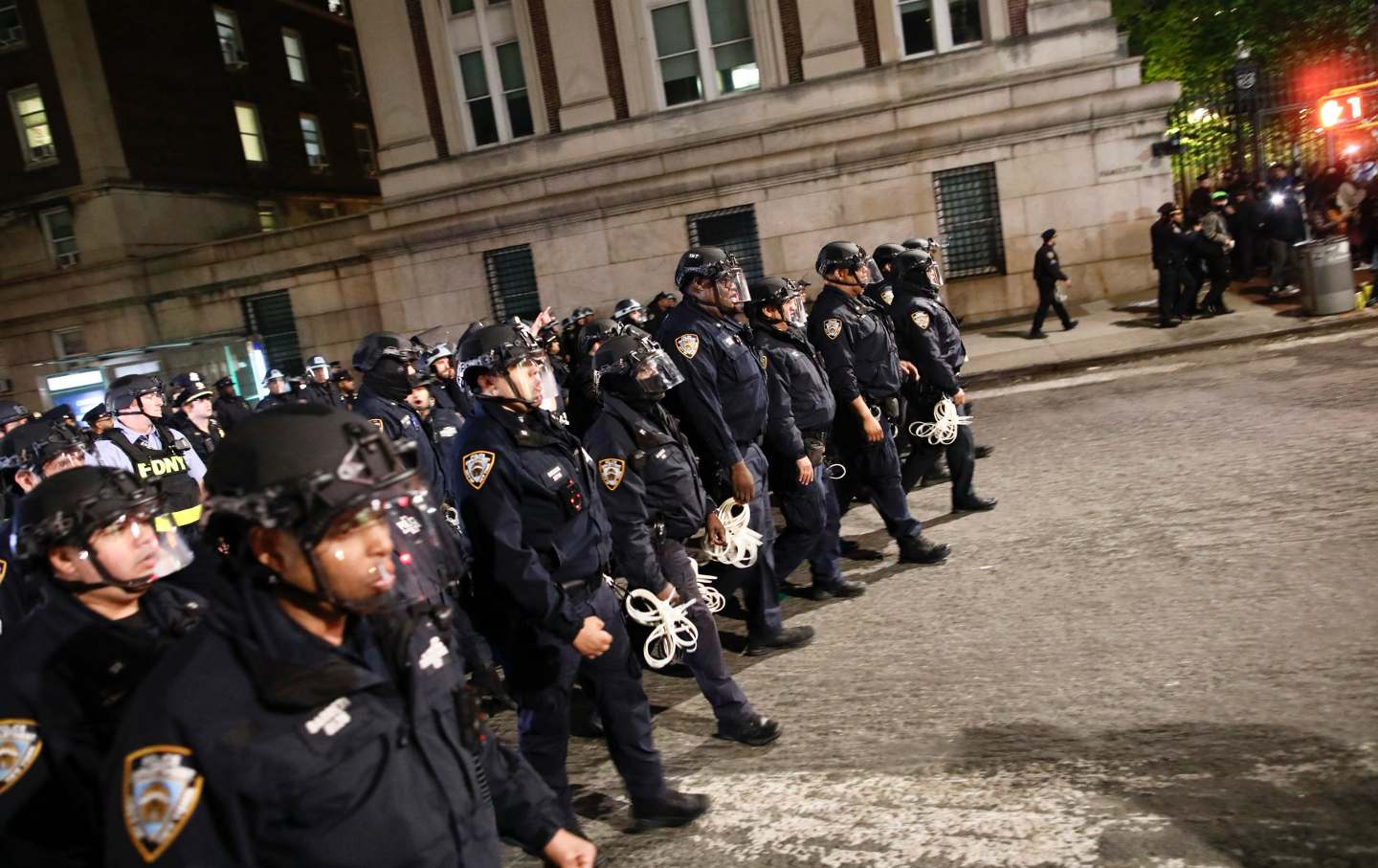On Tuesday night, WKCR-FM, Columbia University’s student-run radio station, provided riveting, detailed coverage of the NYPD’s invasion of their campus, contrasting sharply with mainstream media’s narrative. While WKCR journalists meticulously reported the militaristic actions against the Gaza Solidarity Encampment and protesters, corporate media outlets opted to echo NYPD and government propaganda, failing to uphold journalistic integrity.
The mismanagement of the story began with mainstream outlets uncritically parroting police claims, including allegations of external influences on the protesters. CNN and local reporters propagated baseless smears, such as labeling a protester as “the wife of a terrorist,” prompting backlash and accusations of racism. Despite these inaccuracies, the narrative of “outside agitators” persisted, fueled by officials like Mayor Eric Adams, further amplified by CNN’s Dana Bash and NYPD Deputy Commissioner Tarik Sheppard.
The WKCR journalists, however, provided on-ground reporting, debunking claims of outside influences and affirming the identities of those arrested as students. They also highlighted flaws in the university’s security measures, challenging the mainstream narrative. Despite being students themselves, they demonstrated a commitment to truth and integrity, contrasting with the complacency of well-paid journalists in regurgitating official statements.

Moreover, while mainstream coverage often portrayed police actions in a heroic light, WKCR journalists conveyed the visceral reality of police violence, capturing the fear and chaos on campus. Despite facing intimidation from authorities attempting to halt their reporting, they remained steadfast, driven by a sense of duty to their community and a dedication to truth-telling, even amid personal risk.
In contrast to the mainstream media’s detachment, the emotional and humanized approach of the student journalists resonated with listeners, exposing the mechanisms of power at play. By prioritizing honesty over comfort, they unveiled the lengths to which authorities would go to suppress dissent, standing in stark contrast to mainstream figures serving established interests.
Ultimately, the WKCR journalists, like the protesters, embraced a sense of justice and the imperative of truth-telling in confronting oppression. As mainstream pundits and officials perpetuated their version of events, the WKCR team persisted in their journalistic duty, reaffirming the essence of real journalism in exposing the realities unfolding before them.

